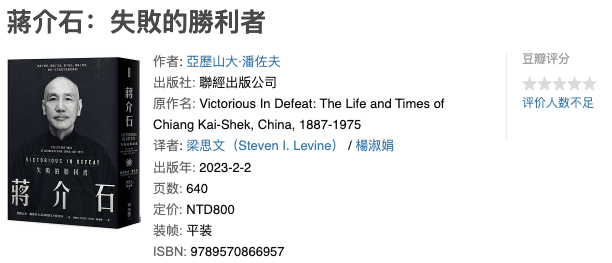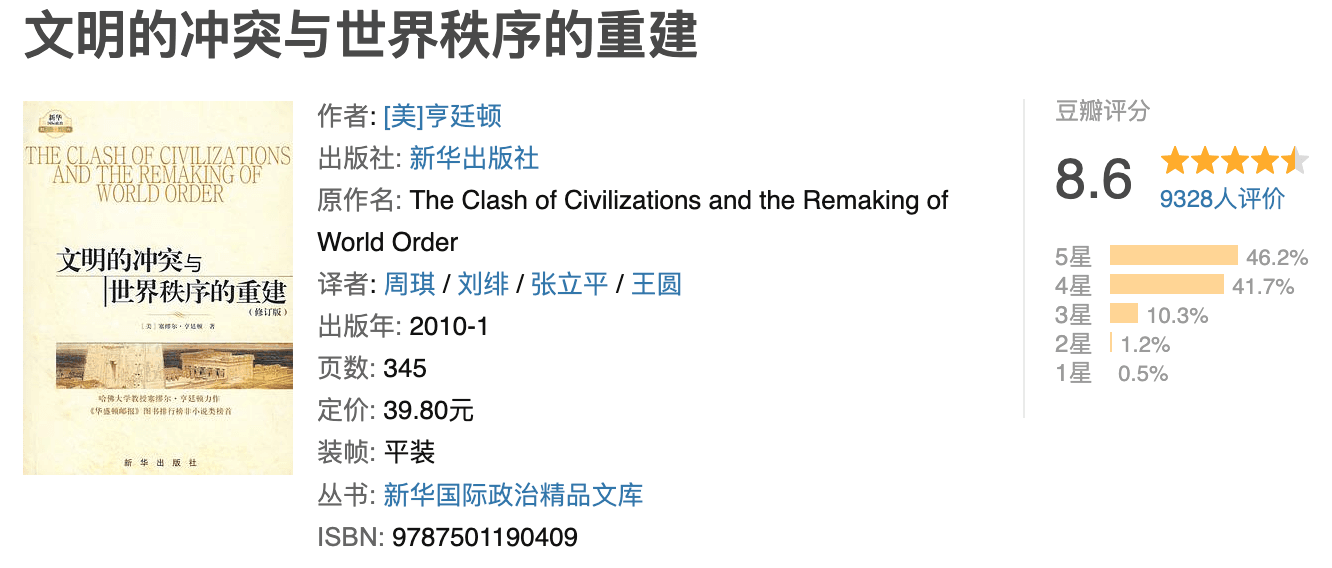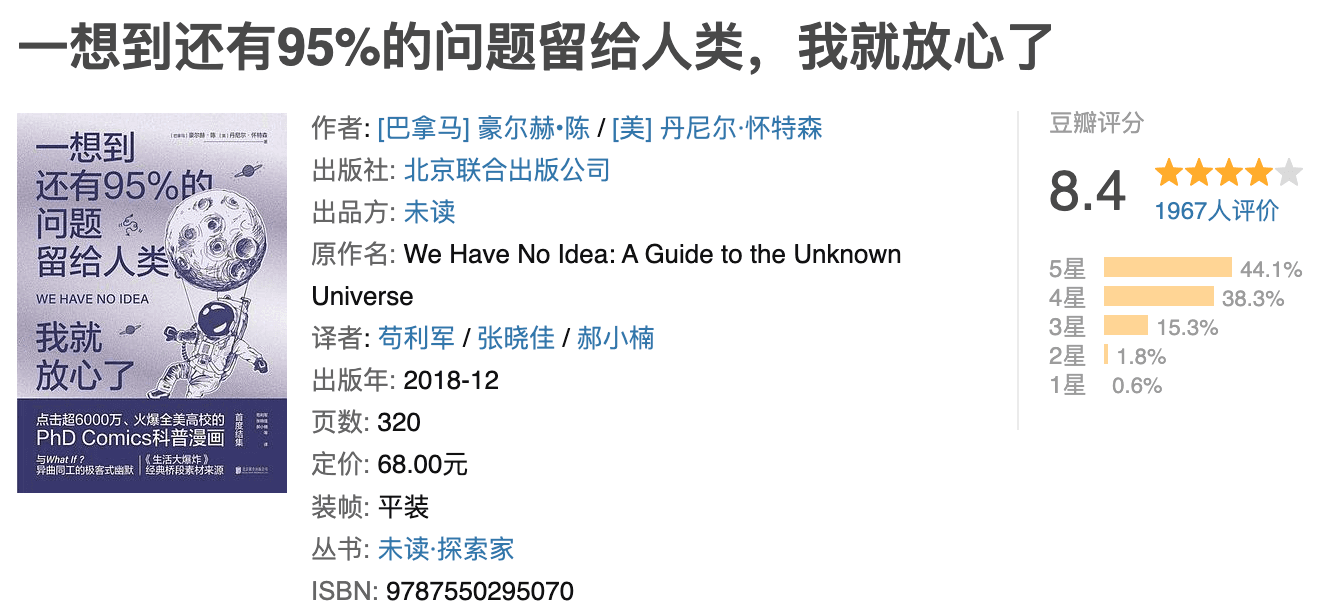"Chiang Kai-shek: The Failed Victor"#

This is the first biography of Chiang Kai-shek that I have read. Due to well-known reasons, I can only read the traditional Chinese version for now, but it hardly affects the reading experience.
After finishing it, my first impression is that it is very real. Amidst grand historical events, the personal emotions and reflections in Chiang Kai-shek's diary make him a more three-dimensional person, completely unlike the paper-like portrayal of historical figures. He is not a demon despised by everyone (although many historical books describe him this way), nor is he a revered god. He is simply a thermodynamics enthusiast born in a turbulent era, who, driven by the times, has achieved such heights through his own struggles. "One's success comes at the expense of countless others," he abandoned the people of Shanghai, Nanjing, the people of the Henan Plain, the people of Changsha, Wuhan... His crimes are too numerous to count. But for someone who ruled China for decades, we cannot ignore his role in advancing the course of history.
"The Clash of Civilizations and the Remaking of World Order"#

When reading this book, I felt really excited. I couldn't help but think, "Hey! Isn't this the world we are living in now!" It wasn't until I finished reading that I realized that a large part of the content in the book was reinforcing my existing beliefs: different cultures in different regions are indeed different, different perspectives easily lead to conflicts, and civilization is an amplified version of culture.
The framework of this book is very clear. It first explains that the world today is a world of multiple civilizations, with the West in decline and Asian civilizations rising. The future world order will be reorganized along the boundaries of different civilizations, and the connecting points are prone to conflicts, even becoming the main form of future conflicts. Finally, the author expresses concerns about the future.
After further contemplation, I began to feel doubtful about Huntington's portrayal in the book. For example, dividing civilizations into the following categories raises doubts: Western civilization, Chinese civilization, Indian civilization, Japanese civilization, Islamic civilization, Eastern Orthodox civilization, Latin American civilization, and possible African civilization. Furthermore, there is almost no mention of the exchange and integration between civilizations and the positive guidance after education is widely spread. It seems to be assumed that exchanges between civilizations will always be tense and hostile. The book provides numerous examples using Muslims, but it is clearly not comprehensive and seems deliberate.
"Knowing that 95% of the Questions are Left for Humanity Makes Me Feel Relieved"#

This is a pretty good popular science book. The book basically doesn't provide answers, but rather lists things that we still don't know──of course, most of them are related to the universe and physics──because the subtitle of this book is "Guide to the Unknown Universe."
I really dislike certain publishing houses that randomly fantasize about the titles of original works, translating them in a bizarre way and feeling proud of themselves. If you read the Chinese title, you might think of the "Ten Thousand Whys" type of questions, and these questions account for 95%... At this point, you might immediately become confused, thinking that without a total number, how can there be a percentage of 95%?──It turns out that the book talks about how humans currently only know 5% of the matter in the universe, and through various experiments, a substance that can distort light has been discovered. We know it is there, but we can't see it, so it is called dark matter, accounting for 27%. The remaining 68% is something we don't know, so it is called dark energy. Now the question arises, how did they determine the percentages without observing the edge of the universe? That's right, scientists draw a circle and analyze what's inside the circle to determine the percentages. Then, assuming the universe is uniform, they reach this conclusion... If you understand this, it means this book is suitable for you, because the book explains these concepts in this way. I gained some small insights after reading it.
Now you know what the so-called 95% problem is, which is 27% dark matter + 68% dark energy in the universe... Can problems and unknowns be the same thing? Kong Yiji couldn't help but argue.